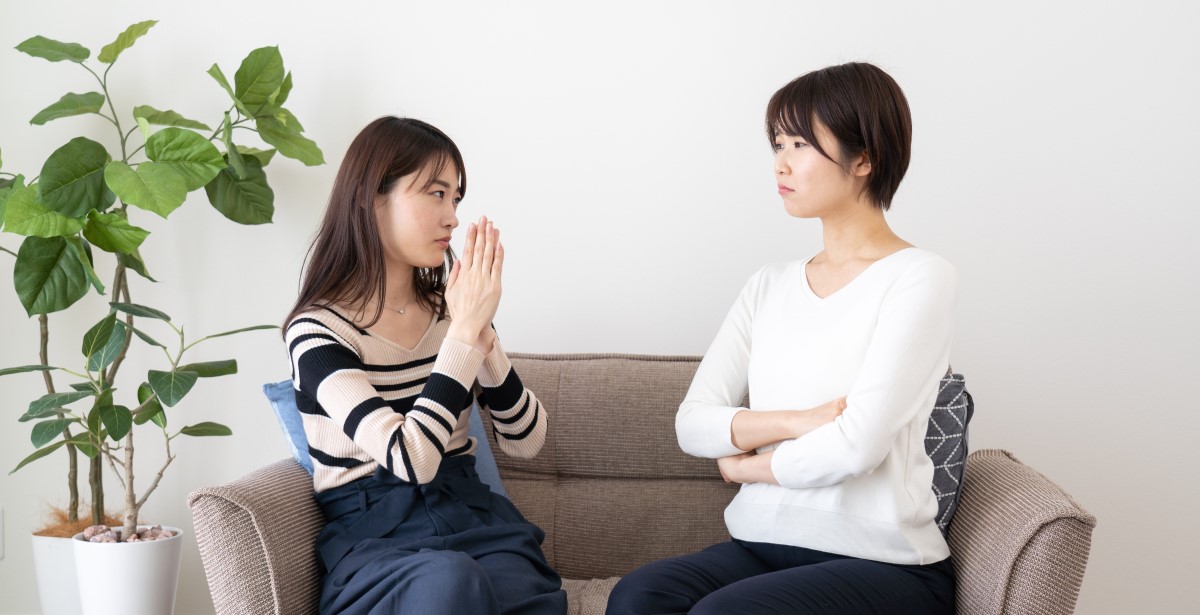There are two common expressions used in everyday Japanese conversation, “Sumimasen” and “Gomennasai,” but did you know that there are subtle differences between them? Both are used to apologize, but understanding the difference between these two words and using them correctly can be very helpful in building relationships with Japanese speakers.
In this post, I will explain the difference between the two and discuss their specific usage.
What is the difference between “Sumimasen” and “Gomennasai”?
Both “Sumimasen” and “Gomennasai” are used when apologizing to someone, but the difference between the two is almost the same as the difference between the English words “Excuse” and “Sorry.” “Sumimasen” is equivalent to “Excuse” in English, and “Gomennasai” is equivalent to “Sorry” in English.
“Suimmasen” and “Gomennasai” are used in different situations, so it is important to know the difference between the two.
Situations in which “Sumimasen” is used
“Sumimasen” is used when you are asking someone to forgive you for something, but it is often used with people you do not have a close relationship with. For example, the following situations
- When you bump into a stranger on the street,
You say “Sumimasen” - When you ask someone to make way for you on a crowded bus or train,
You say “Sumimasen Toushitekudasai” (Excuse me. Please let me through) - When you don’t understand something you’ve been told, so you ask someone to repeat it,
You say “Sumimasen Mouikkai Ittekudasai” (Excuse me. Please say that again) - When you are running a little late for school or work (on the phone),
You say “Sumimasen Denshaga Okureteirunode Sukoshi Okuremasu” (Excuse me. The train is running late, so I will be a little late.) - When you are asked to do something and you refuse it,
You say “Sumimasen Dekimasen” (Excuse me, I can’t do it) - When you used offensive language to someone,
You say “Kanjoteki ni Natte Sumimasen” (I’m sorry I got emotional)
Be careful using “Sumimasen” in business
Although “Sumimasen” is often used in business, it is basically used for minor apologies, and should not be used when you want to sincerely apologize to someone, such as when you have made a serious mistake. If you use “Sumimasen” when you have made a serious mistake, you may make the other person even more angry.
When apologizing sincerely in business, use “申し訳ありません (Moushiwake Arimasen)” or “お詫び申し上げます (Owabi Moushi Agemasu)” instead of “Sumimasen.”
“Sumimasen” vs. “Suimasen”
There is another word “すいません (Suimasen)” that has the same meaning as “すみません (Sumimasen).” The word “Suimasen” is a more informal version of “Sumimasen.” Although both are commonly used in Japanese, it is better to use “Sumimasen.”
Why is “Sumimasen” also used to mean “thank you”?
If you are studying Japanese, you probably know that “Sumimasen” has many meanings. For example, “Sumimasen” has a meaning of thankfulness. When someone does something for you, you say “Sumimasen” instead of “thank you.”
This comes from “気が済まない (Kiga Sumanai)” (not feeling satisfied), which is the origin of the word “Sumimasen.” The word “Kiga Sumanai” expresses the feeling of gratitude to the person who did something for you, and at the same time, the feeling of apology for putting a burden on the other person. The Japanese word for “thankfulness” is written in kanji, “感謝,” and the “謝” in “感謝” means “to apologize. Japanese is a difficult language, isn’t it?
Situations in which “Gomennasai” is used

Unlike “Sumimasen”, “Gomennasai” is mainly used when apologizing to someone close to you, such as a friend or family member. For example, in the following situations
- When you break someone’s property,
You say “Gomennasai Kowashite Shimaimashita” (I’m sorry. I broke it.) - When you are late for school or an appointment,
You say “Okurete Gomennasai” (I’m sorry for being late.) - After a quarrel with someone,
You say “Gomennasai (Watashiga) Warukatta desu” (I’m sorry. It’s my fault)
There is also the expression “Gomen.” “Gomen” is a impolite form of “Gomennasai,” and is used when you are really close to someone and want to make a light apology. It is also used to ask for forgiveness even though it is unlikely that you will be forgiven, for example, “Gomen, Ato Ichiman En Kashite” (Sorry, can you lend me another 10,000 yen?).
“Gomennasai” should not be used in business.
“Sumimasen” is used in business for light apologies, but “Gomenasai” is generally not used in business. “Gomenasai” is a polite way of saying “You should forgive me,” so it is considered rude unless you are close to the person you are apologizing to.
When apologizing in business, “申し訳ありません (Moushiwake Arimasen)” or “お詫び申し上げます (Owabi Moushi Agemasu)” as mentioned above.
Conclusion
Did you understand the difference between “Sumimasen” and “Gomennasai” and how to use them?
Both “Sumimasen” and “Gomennasai” are commonly used in everyday Japanese, but the subtle difference between them can be difficult to understand. If you find it difficult to understand, you should use “Sumimasen” for people you are not close to, “Gomennasai” for people you are close to, and “Moushiwake Arimasen” in business situations.
If you can correctly distinguish between “Sumimasen” and “Gomennasai,” you will be closer to becoming a master of the Japanese language.


